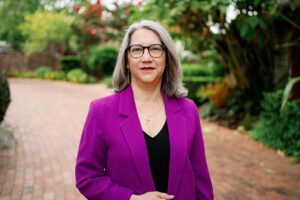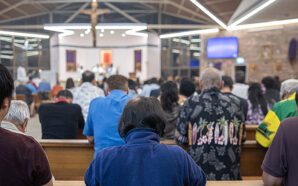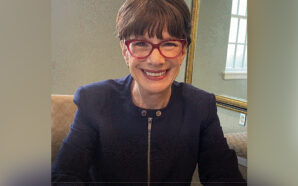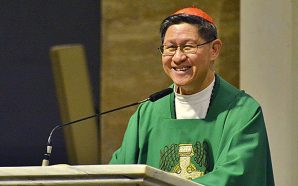
Dr Sandie Cornish, Senior Lecturer in Theology at Australian Catholic University. Image: ACU/Supplied
If you ask ChatGPT what the word “dignity” means it will tell you that it may refer to a sense of worth, honour, or respect that is inherent to every human being. It might mean acting with grace under pressure, or standing up for your integrity, autonomy, and rights. However, we are also familiar with the way the expression “dying with dignity” is used in debates concerning voluntary assisted dying legislation here in Australia. Because the term “dignity” is used in many different ways, the Dicastery for the Doctrine of the Faith, which is the unit of the Holy See with responsibility for clarifying and uploading Church teaching, has issued a Declaration called Dignitas Infinita or Infinite Dignity.
The declaration clarifies how the Catholic Church understands dignity and considers four kinds of dignity that human beings possess: ontological dignity; moral dignity; social dignity; and existential dignity. It also explores the scriptural and theological foundations of this thinking about human dignity, and at Pope Francis’ request, highlights issues like poverty, responses to refugees and asylum seekers, violence against women, human trafficking, and war, in which human dignity is gravely violated (Presentation of the Declaration). The declaration encourages us to move beyond vague slogans about human dignity to consider how we might make a more authentic and effective Christian response.
What exactly are these four kinds of dignity mentioned in Dignitas Infinita? For the average Catholic person, ontological, moral, social, and existential dignity wouldn’t be familiar terms. However, the Declaration is asking Catholics to consider these four aspects of dignity in order to understand and respect the fullness of the human person.
Ontological dignity goes to the heart of the principle of the dignity of the human person in Catholic social teaching. Ontology concerns being or existence so ontological dignity is the dignity that human beings have simply because we exist and are “willed, created and loved by God” (n 7). It is “indelible and remains valid beyond any circumstances in which the person may find themselves” (n 7). The ontological dignity of human beings is universal – belonging to all humans. It is transcendent – valid in all times, places, and circumstances. We can see this teaching at work in the way that the Australian Catholic Bishops Conference Office for Justice Ecology and Peace explains the dignity of the human person:
“We believe that each person is created in the image and likeness of God and is endowed with freedom and responsibility. Hence each and every person is willed into existence by God and is of inestimable worth. Each person reveals something of God’s self; there are no spare or disposable people. Furthermore, nothing a person might do or that might be done to them can deprive them of their human dignity. The claims that human dignity makes on others can be understood as human rights. They continue to exist even if they are not respected.” https://socialjustice.catholic.org.au/catholic-social-teaching/catholic-social-teaching-faqs/
Looking at the world around us we can see that people don’t always live dignified lives. Responding to these realities some Church agencies speak of ‘giving people dignity’. However, Dignitas Infinita reminds us that God is the source of our dignity. Just as we can’t take another person’s ontological dignity away, neither can we give others dignity. The concepts of moral dignity, social dignity, and existential dignity can help us to better understand our role in recognising, respecting, protecting, and promoting human dignity.
Social dignity to refers “to the quality of a person’s living conditions” (n 8). The declaration gives the example of extreme poverty in which people “do not even have what is minimally necessary to live according to their ontological dignity” (n 8). We might say that these people are living in an ‘undignified’ manner because “the situation in which they are forced to live contradicts their inalienable dignity” (n 8). When we act to change these social conditions, we are not giving people dignity, we are recognising their dignity and promoting it by removing barriers to the expression of their God-given dignity. Although the Australian Bishops use the expression social dignity, they address it in several of their teachings. For example, each year their submission to the National Wage Case promotes the social conditions needed for a dignified life. Their Social Justice Statements for 2017-2018 Everyone’s Business and 2013-2014 Lazarus at Our Gate also address wealth and poverty from the perspective of dignity.
Moral dignity refers to “how people exercise their freedom” (n 7). People who have committed profoundly evil acts may “seem to have lost any trace of humanity and dignity” (n 7). They can be said to have lost their moral dignity, but never their ontological dignity. Rather than failing to recognise and respect their ontological dignity “we must work with all our might so that all those who have done evil may repent and convert” (n 7). Our bishops have addressed the way ‘tough on crime’ talk and criminal justice systems can lose sight of the ontological dignity of people who have done wrong. In their 2011-2012 Social Justice Statement Building Bridges not Walls, the bishops don’t use the term moral dignity, but their treatment of the dignity of prisoners and ex-offenders reflects its interaction with ontological dignity.
In Australian society, there has been much discussion of what it means to live or die with dignity. Existential dignity refers to whether or not we experience our lives as dignified. The declaration notes that “while some people may appear to lack nothing essential for life, for various reasons, they may still struggle to live with peace, joy, and hope” and that “serious illnesses, violent family environments, pathological addictions, and other hardships may drive people to experience their life conditions as ‘undignified’ vis-à-vis their perception of that ontological dignity that can never be obscured” (n 8). In these situations, we are challenged to help people to recognise and experience their ontological dignity. The Australian Bishops’ teaching on voluntary assisted dying legislation is well-known. Perhaps less well-known is their teaching against domestic and family violence which disproportionately affects women and children, for example their Social Justice Statement 2022-2023 Respect: Confronting Violence and Abuse. The term existential dignity is not used in these documents, but the concept is implicit in the Bishops’ appeal to human dignity.
Dignitas Infinita encourages us to think more deeply about human dignity and to promote the dignity of every human being. The full text can be found here.
Dr Sandie Cornish is a Senior Lecturer in Theology at Australian Catholic University and a Member of the Dicastery for Promoting Integral Human Development. She specialises in Catholic social teaching, thought and action.








